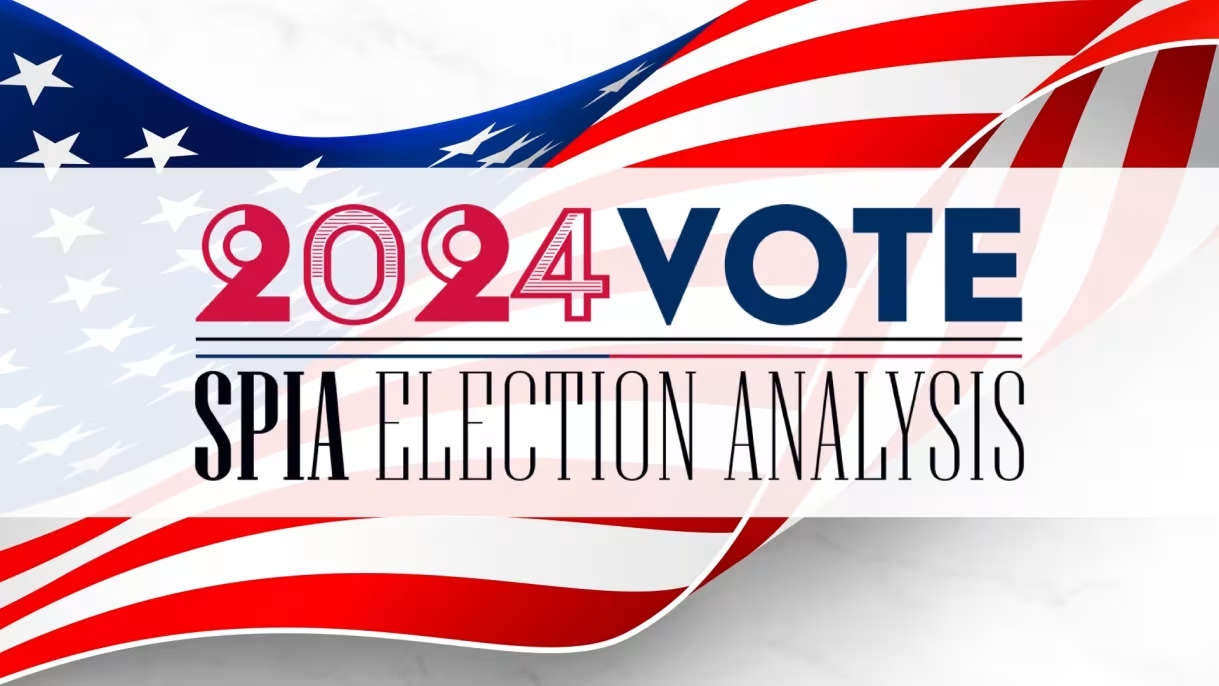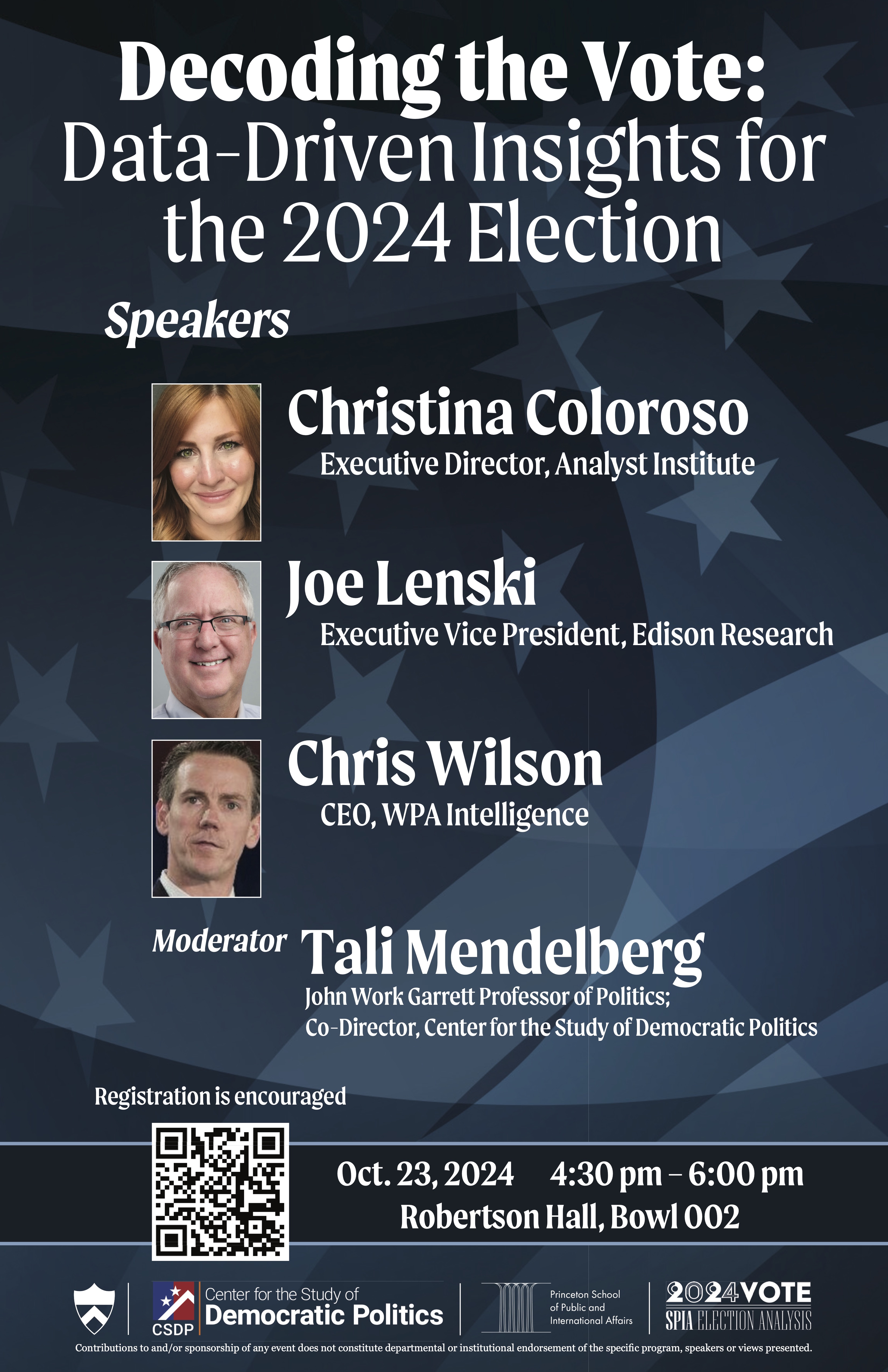

Decoding the Vote: Data-Driven Insights for the 2024 Election

Join a distinguished panel of experts as they explore the role of data and analytics in the 2024 election campaigns. The panel will offer a compelling look at current election science, delving into the latest methods in exit polling, predictive analytics, and political strategy.
Speakers
Christina Coloroso, Executive Director, Analyst Institute
As Executive Director of the Analyst Institute, Christina leads an unparalleled team of data scientists, researchers, and engagement specialists in developing innovative, data-driven approaches to the challenges faced by the progressive community. Her decade-plus experience as a top progressive strategist helps ensure AI’s work is relevant, inclusive, and actionable for partners.
Prior to AI, Christina led the Analytics program at Catalist and at the DCCC on both the coordinated and independent sides. Christina has also worked as a pollster, mail consultant, campaign manager, and state party operative.
Joe Lenski, Executive Vice President, Edison Research
Joe Lenski is co-founder and Executive Vice President of Edison Research. Under his supervision, Edison Research currently conducts all exit polls for the major news organizations comprising the National Election Pool (NEP) – ABC, CBS, CNN, and NBC. Edison Research has conducted all state and national exit polling for the NEP since 2003. Edison Research has also conducted exit polls for national elections in Iraq, Venezuela and the Republican of Georgia.
Lenski has served on the Executive Council for the American Association for Public Opinion Research (AAPOR), and as President of the New York Chapter of AAPOR. Lenski is a graduate of Princeton University and studied at the Annenberg School for Communication at the University of Pennsylvania.
Chris Wilson, CEO, WPA Intelligence
Prior to starting WPA Intelligence in 2004, Chris was Global Director of Research for Weber Shandwick International, the world’s largest public relations firm at the time.
In 2021 Chris was named Pollster of the Year by the American Association of Political Consultants for his work directing survey research and predictive analytics on the Glenn Youngkin for Governor of Virginia campaign. In 2019 he was named Technology Leader of the year by Campaigns & Elections magazine.
In 2016, as the Director of Research, Analytics and Digital Strategy for the Cruz for President campaign, Chris is credited for playing a key role in Cruz’s triumph in Iowa and helping the Texas Senator finish with the most delegates earned by a 2nd place finisher since Ronald Reagan in 1976. Wilson and WPAi work with organizations like the Club for Growth, Freedom Works, Family Research Council, the Republican National Committee, the National Republican Senatorial Committee and the National Republican Congressional Committee providing data and polling.
More recently, Chris has also served as the Head of Data for Never Back Down, the super PAC backing Ron DeSantis.
Moderator
Tali Mendelberg, John Work Garrett Professor of Politics; Co-Director, Center for the Study of Democratic Politics
Tali Mendelberg is the John Work Garrett Professor of Politics at Princeton University, co-director of the Center for the Study of Democratic Politics, and director of the Program on Inequality at the Mamdouha S. Bobst Center for Peace and Justice. Her book The Race Card: Campaign Strategy, Implicit Messages, and the Norm of Equality (Princeton University Press, 2001), won the American Political Science Association's Woodrow Wilson Foundation Award for "the best book published in the United States during the prior year on government, politics or international affairs." The Silent Sex: Gender, Deliberation and Institutions (Princeton University Press, 2014), coauthored with Chris Karpowitz, has also won distinctions. Earlier versions of its parts received the APSA Paul Lazarsfeld Award for the best paper in Political Communication (twice), the APSA Best Paper Award in Political Psychology (twice), the Carrie Chapman Catt Prize for Research on Women and Politics (honorable mention), and was in the top-ten most downloaded APSR articles in 2013.
Sponsorship of an event does not constitute institutional endorsement of external speakers or views presented.

